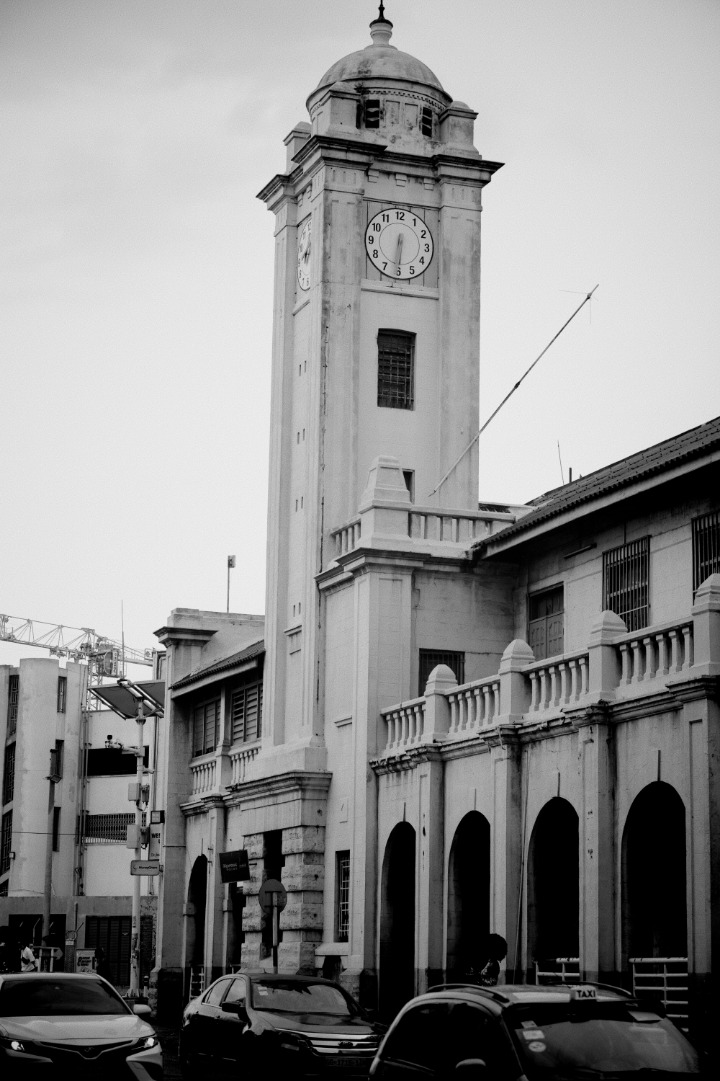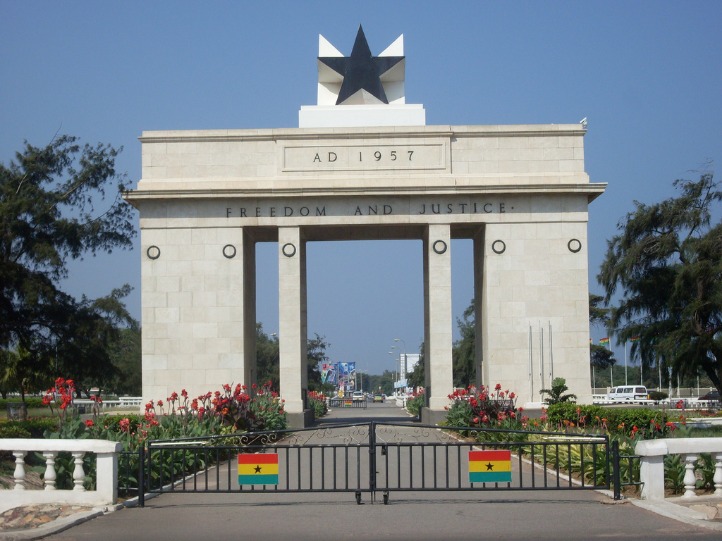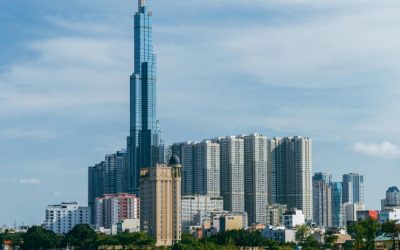Geography and Climate of Accra
Accra, the vibrant capital city of Ghana, is situated along the Atlantic coast in West Africa. Known for its lively culture and economic significance, the city features a diverse geographical landscape that includes coastal plains, hills, and swampy areas. Its climate is characterized by a tropical savanna climate with distinct wet and dry seasons, influenced by the maritime environment and the Harmattan winds from the Sahara. This combination of geography and climate plays a vital role in shaping the lifestyle, agriculture, and urban development of Accra.
Location and Topography
Accra, the capital city of Ghana, is situated along the Atlantic Ocean in the southeastern part of the country. It lies within the Greater Accra Region and serves as the economic and administrative hub of Ghana. The city’s location offers it a strategic advantage for trade and commerce, positioned close to key transportation routes and ports.
The topography of Accra features a relatively flat terrain with some gentle undulations. The city is characterized by coastal plains that extend inward from the Atlantic Ocean, providing a suitable environment for urban development. Inland, there are low hills and ridges that contribute to the varied landscape of the region. The city’s proximity to the coast influences its climate, which is classified as tropical savanna with distinct wet and dry seasons, characterized by warm temperatures and high humidity throughout the year.
Climate and Weather Patterns
Accra, the capital city of Ghana, is located along the Gulf of Guinea on the southern coast of West Africa. Its geographical position gives it a coastal climate with relatively flat terrain interspersed with some hills, providing scenic views and influencing local weather patterns.
The climate of Accra is classified as tropical, characterized by a warm and humid environment throughout the year. The city experiences two main seasons: a wet season from April to October, dominated by the Intertropical Convergence Zone, bringing heavy rains and thunderstorms, and a dry season from November to March, influenced by the Harmattan winds from the Sahara desert, which bring dusty, cooler air and lower humidity.
Weather patterns in Accra are generally consistent with these seasonal shifts. During the rainy season, the city experiences high rainfall, often accompanied by thunderstorms and occasionally flooding, while the dry season features lower rainfall and more sunshine. Temperatures tend to remain stable year-round, averaging around 26 to 30 degrees Celsius (79 to 86 degrees Fahrenheit), with higher temperatures during the dry season and cooler, more comfortable conditions during the rains. Overall, Accra’s climate supports a lush coastal environment but also presents challenges such as flooding during heavy rains.
History and Cultural Heritage
Accra, the vibrant capital of Ghana, is a city rich in history and cultural heritage. It serves as a testament to Ghana’s diverse past, blending ancient traditions with modern development. The city’s historical sites, museums, and local customs offer a captivating glimpse into its past, making Accra a unique center of cultural identity in West Africa.
Historical Background
Accra, the capital city of Ghana, boasts a rich history and vibrant cultural heritage that reflect its diverse past. Originally a small fishing settlement, it grew significantly during the age of European exploration and trade, becoming a key port in West Africa. The city played an important role in the trans-Atlantic slave trade, with sites that bear witness to this turbulent period. Over the centuries, Accra evolved through colonial influences, particularly under British rule, which left a lasting impact on its architecture and urban layout. Today, the city stands as a symbol of Ghanaian resilience and heritage, harmonizing its historical roots with modern development. Cultural landmarks, museums, and traditional festivals showcase its deep connection to history and identity, making Accra a vital center of cultural pride and historical significance in West Africa.
Cultural Landmarks and Heritage Sites
Accra, the vibrant capital city of Ghana, boasts a rich history and a wealth of cultural heritage that reflects its diverse past. The city has long been a hub for trade, colonial influence, and traditional Ghanaian customs, which are evident in its numerous cultural landmarks and heritage sites. These sites not only preserve the history of Accra but also serve as a testament to Ghana’s collective identity and cultural pride.
One of the most significant landmarks in Accra is the W.E.B. Du Bois Center, dedicated to the prominent African-American scholar and civil rights activist who chose Ghana as his home. The Labadi Beach and Independence Square are also prominent cultural symbols, representing Ghana’s journey to independence and its aspirations for unity and progress. Additionally, the Cape Coast Castle and Elmina Castle, though slightly outside Accra, are crucial heritage sites that highlight Ghana’s colonial history and the transatlantic slave trade.
Accra’s vibrant markets, traditional festivals, and colorful architecture further contribute to its cultural landscape. The city’s museums, such as the National Museum of Ghana, showcase artifacts, artworks, and exhibits that narrate the story of Ghana’s history and cultural evolution. By preserving these landmarks and heritage sites, Accra continues to honor its ancestors and provide a glimpse into Ghana’s storied past, making it a compelling destination for those interested in history and cultural heritage.
Economy and Industry
Accra, the vibrant capital city of Ghana, serves as the economic and industrial hub of the country. Its dynamic economy is driven by diverse sectors such as trade, manufacturing, and services, making it a key contributor to Ghana’s overall development. The city’s strategic location and burgeoning infrastructure foster a thriving business environment, attracting both local and international investments. As Accra continues to grow, its economy and industry play a crucial role in shaping the future of Ghana’s urban landscape.
Major Sectors
Accra, the capital city of Ghana, serves as the economic and industrial hub of the country, playing a vital role in national development. The city boasts a diverse economy driven by various major sectors that contribute significantly to its growth.
One of the prominent sectors in Accra is the services industry, including banking, finance, telecommunications, and tourism, which together form the backbone of the city’s economy. The financial sector is well-developed, with numerous banks and financial institutions operating within the city, supporting local businesses and international trade.
Industry in Accra is also robust, with manufacturing facilities producing textiles, food and beverages, and construction materials. The city’s strategic location and improved infrastructure facilitate commerce and industrial activities, attracting both domestic and foreign investments.
Agriculture, although more prominent outside the city, still influences Accra’s economy through the import of agricultural produce and the growth of agro-processing industries. Additionally, the real estate sector has experienced rapid growth, driven by urbanization and population expansion.
Overall, Accra’s economy is characterized by its diverse major sectors, which continue to evolve and adapt to global trends, making it a key driver of Ghana’s economic development.
Markets and Commerce Hubs
Accra, the capital city of Ghana, serves as a vital hub for the country’s economy and industry. It boasts a diverse economic landscape that includes manufacturing, services, trade, and finance sectors, making it a pivotal center for commerce in West Africa. The city hosts numerous markets, commercial districts, and business hubs that facilitate vibrant local and international trade activities.
The markets in Accra, such as the Makola Market, are bustling centers of commerce where traders sell a variety of goods ranging from textiles and crafts to foodstuffs. These markets are not only vital for the local economy but also attract visitors and traders from neighboring countries, enhancing regional trade connections.
Accra’s industrial zones, like the Achimota and Lapaz industrial areas, support manufacturing industries including textiles, food processing, and building materials. Additionally, the city is home to financial institutions, corporate headquarters, and technology startups, reinforcing its role as a key financial and entrepreneurial hub in Ghana.
The city’s strategic location along the Gulf of Guinea enhances its role in regional and international markets, with major ports like the Tema Harbour facilitating significant import and export activities. As a result, Accra continues to develop its markets, industry sectors, and commerce hubs to sustain economic growth and development within Ghana and beyond.
Urban Development and Infrastructure
Urban development and infrastructure play a vital role in shaping the growth and sustainability of cities like Accra, the vibrant capital of Ghana. As the city continues to expand rapidly, it faces the challenge of balancing modern infrastructure development with preserving its cultural heritage. Efficient urban planning, transportation networks, and sustainable development initiatives are essential for improving residents’ quality of life and supporting economic growth in Accra.
City Planning and Expansion
Accra, the capital city of Ghana, has experienced rapid urban development and expansion over the past few decades. As the economic and administrative hub of the country, it faces the challenge of balancing growth with sustainable infrastructure development and effective city planning.
- The city has undergone significant infrastructural improvements, including the expansion of roads, bridges, and public transportation systems to accommodate the increasing population.
- Urban planning initiatives aim to decongest congested areas, promote balanced development, and enhance urban aesthetics.
- Accra’s expansion has led to the growth of suburbs and peripheral areas, requiring careful zoning and land-use policies to prevent unchecked sprawl.
- Efforts are ongoing to upgrade basic facilities such as water supply, sanitation, and electricity to support the growing urban population.
- Smart city concepts and sustainable development practices are increasingly being incorporated into Accra’s city planning strategies.
- Implementing comprehensive master plans that address housing, transportation, and environmental management.
- Promoting public-private partnerships to fund infrastructure projects and urban development initiatives.
- Enhancing disaster preparedness and resilience through resilient infrastructure and urban hazard management.
- Encouraging community participation to ensure development projects meet the needs of residents.
- Fostering green spaces and recreational areas to improve residents’ quality of life amid urban growth.
Transportation Networks
Accra, the capital city of Ghana, has experienced rapid urban development driven by economic growth and population increase. The city’s infrastructure includes a mix of modern buildings, roads, and public facilities aimed at supporting its expanding population. Enhanced urban planning is crucial to managing sustainable growth and improving the quality of life for residents.
Transportation networks in Accra play a vital role in connecting different parts of the city and facilitating movement. The city features major roads, such as the N1 and N2 highways, that link residential areas to commercial and industrial zones. Public transportation options include trotro buses, shared taxis, and recently expanding commuter rail services, aimed at reducing traffic congestion and providing affordable transit. Investment in infrastructure development continues to be prioritized to support Accra’s status as a key economic hub in West Africa.
Tourist Attractions and Activities

Accra, the vibrant capital of Ghana, is a city teeming with exciting attractions and diverse activities for visitors to enjoy. From its rich cultural heritage and historic sites to lively markets and beautiful beaches, Accra offers a unique blend of modern urban life and traditional charm. Whether exploring the bustling streets, visiting museums, or relaxing by the Atlantic coast, there is something for every traveler in this dynamic city.
Beaches and Waterfronts
Accra, the vibrant capital of Ghana, offers a diverse array of tourist attractions and activities that showcase its rich history and lively culture. Visitors can explore historical sites like the Cape Coast Castle and the W.E.B. Du Bois Center, which provide insight into Ghana’s colonial past and independence movement. For a taste of local life, bustling markets such as Makola Market and arts hubs like the Artists Alliance Gallery are must-visits. The city also boasts modern entertainment venues, delicious cuisine, and lively music scenes that reflect its dynamic spirit.
Accra’s beaches and waterfronts are among its most popular destinations for relaxation and water-based activities. Labadi Beach, also known as La Pleasure Beach, is famous for its vibrant atmosphere, music, and local vendors offering food and souvenirs. Coco Beach is another popular spot, perfect for swimming, picnics, and enjoying the sunset. The shoreline along the Gulf of Guinea provides opportunities for water sports such as surfing and paddleboarding, making Accra a perfect destination for both cultural exploration and seaside leisure.
Museums and Cultural Centers
Accra, the vibrant capital of Ghana, offers a diverse array of tourist attractions and cultural experiences for visitors to enjoy. From historical landmarks to lively markets, the city provides a unique blend of tradition and modernity.
Visitors can explore the National Museum of Ghana, which showcases the rich history, art, and culture of the country through its extensive exhibits. The W.E.B. Du Bois Center is another significant site, honoring the renowned African-American scholar and his contributions to African heritage. For those interested in religion and history, the Labadi Beach Muslim Cemetery and the Holy Spirit Cathedral offer insights into the spiritual life of Accra.
Accra is home to bustling markets such as the Makola Market, where visitors can immerse themselves in local commerce, sample traditional foods, and purchase handmade crafts. The Artists Alliance Gallery is a must-visit for art lovers, featuring vibrant paintings, sculptures, and crafts created by Ghanaian artists.
Cultural Centers like the National Theatre host performances, festivals, and theatrical productions that reflect Ghanaian culture and traditions. Additionally, the Artist Village at the Artists Alliance provides workshops and live demonstrations, offering visitors a chance to engage with local artisans and learn about Ghanaian art forms.
Beyond museums and cultural centers, Accra boasts beautiful parks and beaches that are perfect for relaxation and outdoor activities. These attractions collectively highlight the city’s rich cultural tapestry and make it a compelling destination for travelers seeking heritage and entertainment.
Education and Institutions
Accra, the vibrant capital city of Ghana, is a center of education and institutional development in the region. The city boasts a diverse array of educational institutions ranging from primary schools to universities, fostering growth and learning among its residents. These institutions play a crucial role in shaping the future workforce and promoting socioeconomic progress within the city and beyond.
Universities and Schools
Accra, the capital city of Ghana, is home to a vibrant education sector that serves students from diverse backgrounds. The city boasts a range of institutions including universities, colleges, and primary and secondary schools dedicated to fostering academic excellence and innovation. These institutions play a crucial role in shaping the future workforce of Ghana and contribute significantly to the country’s development.
Among the notable universities in Accra are the University of Ghana, which is the oldest and most prominent university in the country, and institutions like Ashesi University and Ghana Technology University College. These universities offer programs in various fields, including humanities, sciences, engineering, and business, attracting both local and international students.
Accra’s schools include a mix of government-operated and private institutions that provide quality education at all levels. The city is known for its well-established secondary schools such as Achimota School and Wesley Girls’ High School, which have produced many prominent leaders and professionals. The presence of these educational institutions underscores Accra’s status as an educational hub in West Africa.
Research Institutions
Accra, the vibrant capital city of Ghana, is a major hub for education and research institutions that contribute significantly to the country’s development. The city’s educational landscape is diverse, encompassing various universities, colleges, and specialized research centers dedicated to advancing knowledge and innovation.
- University of Ghana: Located in Legon, it is the nation’s largest and oldest university, offering a wide range of programs in arts, sciences, and professional studies.
- Accra Technical University: Focuses on technical and vocational education to equip students with practical skills for the job market.
- Ghana Institute of Management and Public Administration: Provides training in public administration, management, and policy research.
- Cornell University West Africa Research and Innovation Center: Conducts regional research projects aimed at addressing social and economic challenges.
- Noguchi Memorial Institute for Medical Research: A leading biomedical research center dedicated to health sciences and infectious disease research.
These institutions foster a culture of learning and innovation in Accra, attracting students and researchers from across Ghana and internationally. They play a vital role in supporting the city’s development as a center for education, scientific discovery, and technological advancement.
Demographics and Population
Accra, the vibrant capital city of Ghana, is a diverse and dynamic metropolis teeming with a growing population. Its demographics reflect a rich blend of ethnic groups, cultures, and traditions, contributing to the city’s unique cultural landscape. As one of the fastest urbanizing areas in West Africa, Accra’s population continues to expand rapidly, driven by factors such as economic opportunities and rural-urban migration. Understanding the demographics of Accra is essential to appreciating its social fabric and planning for its sustainable future.

Population Statistics
Accra, the capital city of Ghana, is a vibrant urban center with a diverse and growing population. As of recent estimates, the population of Accra is approximately 2.6 million residents, making it one of the most densely populated cities in West Africa. The city serves as the political, economic, and cultural hub of Ghana, attracting people from various regions and countries.
The demographics of Accra are characterized by a youthful population, with a significant percentage of residents under the age of 30. This youthful demographic contributes to the dynamic culture and rapid urban development in the city. The population is also ethnically diverse, with various ethnic groups such as the Ga, Akan, Ewe, and others coexisting in the urban environment.
Population growth in Accra has been steady, driven by rural-urban migration, natural population increase, and ongoing economic opportunities. This growth presents both opportunities and challenges, including the need for improved infrastructure, housing, and social services to accommodate the expanding population. Efforts to collect and analyze accurate population statistics are ongoing, aimed at enhancing planning and sustainable development in the city.
Ethnic and Social Composition
The city of Accra, Ghana, boasts a diverse demographic and social landscape that reflects its vibrant history and dynamic growth. As the capital and largest city of Ghana, Accra attracts people from various ethnic and social backgrounds, creating a multicultural environment.
- The population of Accra is estimated to be over 2.3 million residents, with the metropolitan area housing more than 4 million people, making it one of the most populous cities in West Africa.
- Accra is predominantly inhabited by the Ga people, the indigenous ethnic group, alongside significant populations of Akans, Ewe, Mole-Dagbon, and other Ghanaian ethnic groups.
- The city also hosts a growing number of expatriates, entrepreneurs, and international workers, contributing to its cosmopolitan character.
- In terms of social composition, Accra exhibits a mix of traditional and modern lifestyles, with affluent neighborhoods and informal settlements coexisting side by side.
- The population is relatively young, with a median age in the late teens to early twenties, driven by ongoing migration from rural areas seeking employment and educational opportunities.
Challenges and Development Initiatives
Accra, the vibrant capital of Ghana, faces numerous challenges in its urban development journey, including rapid population growth, infrastructure gaps, and environmental concerns. To address these issues, various development initiatives have been launched by government agencies, international organizations, and local communities aimed at creating sustainable and inclusive urban spaces. Understanding these challenges and initiatives is essential to appreciating the ongoing efforts to transform Accra into a thriving and resilient city.
Urban Challenges
Accra, the capital city of Ghana, faces numerous urban challenges that impact its growth and livability. Rapid population growth has led to increased pressure on infrastructure, housing, and public services, resulting in congestion and inadequate sanitation facilities. Unplanned urban expansion has contributed to slum development, environmental degradation, and traffic congestion, making mobility difficult for residents. Additionally, rising unemployment and poverty levels pose social challenges that require comprehensive development strategies.
To address these issues, various development initiatives have been introduced. The Accra Urban Development Plan aims to improve land use management and infrastructure provision. The city has seen investments in improved transport systems, including Bus Rapid Transit (BRT) projects to reduce traffic congestion. Efforts are also underway to enhance waste management and sanitation, alongside programs promoting sustainable urban growth. Community-based projects and partnerships with international organizations seek to foster resilient, inclusive, and sustainable urban development for Accra’s future.
Government and Private Sector Projects
The city of Accra in Ghana faces a range of challenges that impact its development, including rapid urbanization, traffic congestion, inadequate infrastructure, and environmental concerns. These issues hinder sustainable growth and require coordinated efforts to address effectively. To overcome these hurdles, both government and private sector initiatives have been implemented to promote urban development, improve public services, and enhance the quality of life for residents.
Government projects in Accra focus on upgrading transportation systems, expanding affordable housing, and upgrading sanitation and waste management facilities. Notable initiatives include the Accra Metropolitan Transport Project, which aims to improve public transit, and the ongoing efforts to expand power supply and water infrastructure. Additionally, policies encouraging green development and smart city planning are being adopted to make Accra more resilient and sustainable.
Private sector involvement has played a crucial role in driving innovation and investment in the city. Real estate developers are constructing modern residential and commercial complexes, supporting urban renewal efforts. Companies specializing in renewable energy are expanding access to clean power sources, while financial institutions are providing funding for infrastructural projects. Public-private partnerships are pivotal in accelerating development projects aimed at transforming Accra into a more livable and economically vibrant city.





0 Comments